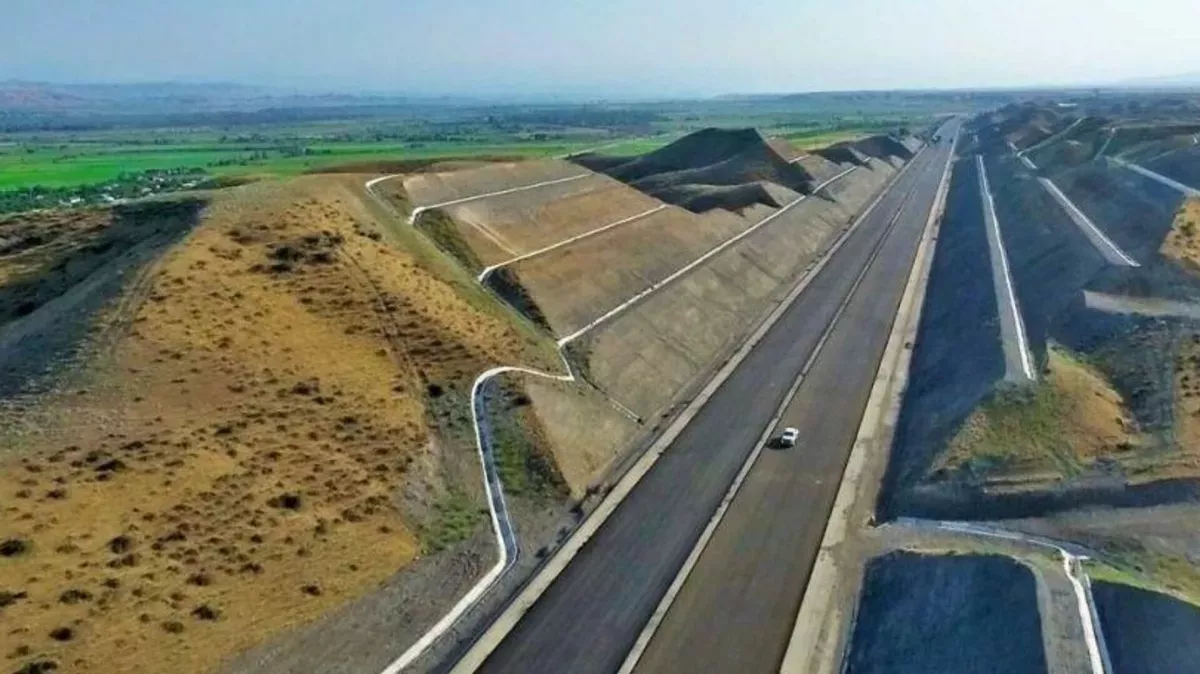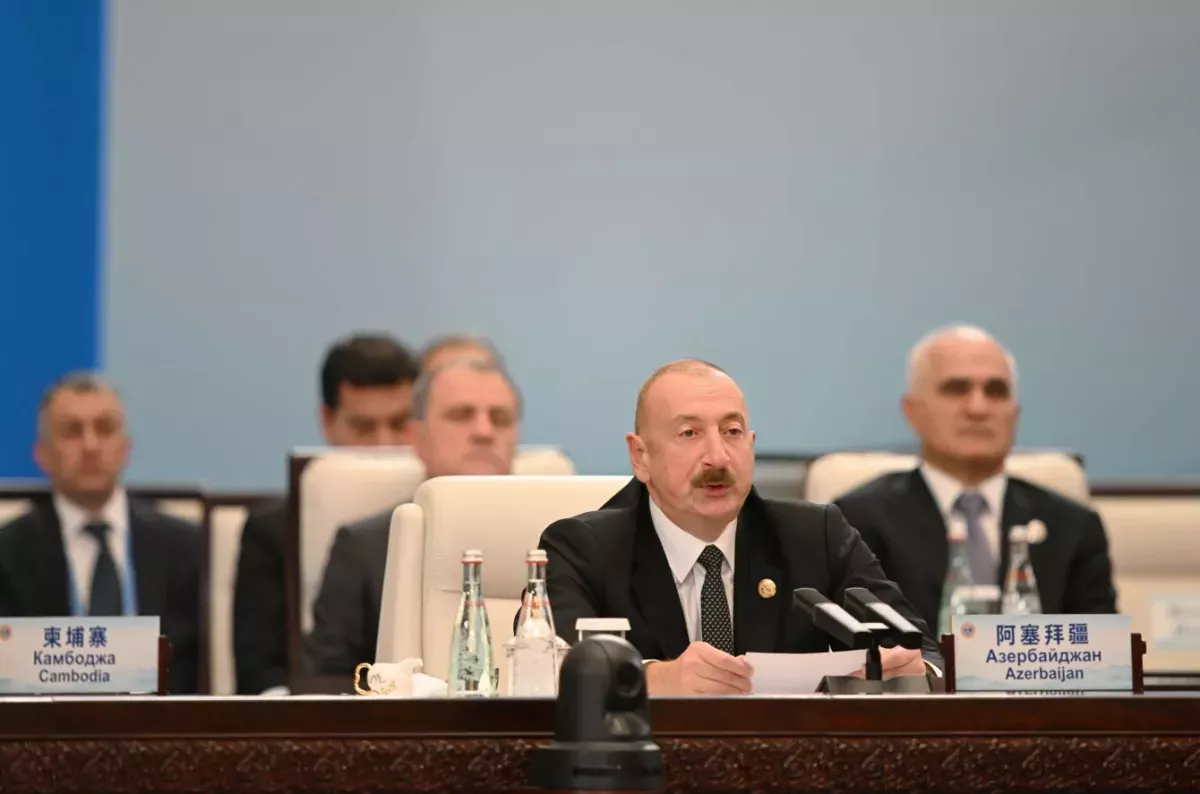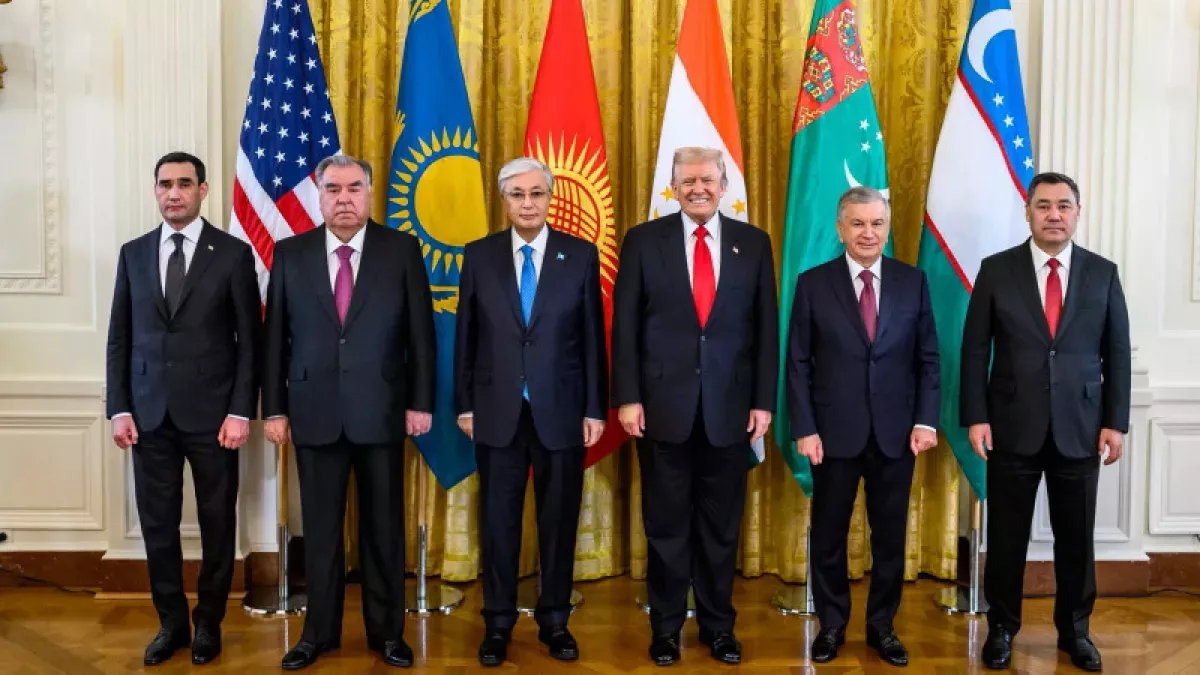Azerbaijan — a strategic link between the US and Central Asia Afterword to the C5+1 Summit
The individual outcomes of the recently concluded US–Central Asia (CA) summit in Washington once again underscored, unsurprisingly, the geopolitical importance not only of the Central Asian region but also of Azerbaijan. They also demonstrated President Ilham Aliyev’s analytical foresight, rooted in his grandmaster-like vision of global affairs. Let us go step by step.
To begin, let us recall 2023, when, for the first time in history, the leader of a non-Central Asian country—President Aliyev—was invited to participate in the Fifth Advisory Meeting of Central Asian Heads of State. In his address, he described Central Asia and Azerbaijan as strategic links in global politics and emphasised Baku’s role as a reliable transit hub connecting Central Asian countries to the markets of Türkiye and Europe: “Our transportation and logistics infrastructure is available to all the ECO [Economic Cooperation Organization] nations.”
The unique model of mutual understanding between Central Asia and Azerbaijan was further confirmed in November of that year during the summit of the UN Special Program for the Economies of Central Asia (SPECA) in Baku. There, President Aliyev highlighted Azerbaijan’s investment of billions of dollars in its transport infrastructure, transforming the country into one of the key transport and logistics hubs of Eurasia.

At the 2024 meeting of Central Asian and Azerbaijani heads of state in Astana, President Aliyev noted that the steps taken by all parties in transport and transit had further enhanced the “practical significance of the Middle Corridor.”
Among this year’s notable developments, the August agreements between the leaders of Azerbaijan, Armenia, and the United States in Washington stand out. On August 8, President Aliyev and the Armenian Prime Minister signed a Joint Declaration, witnessed by US President Donald Trump. The declaration reaffirmed the importance of reopening communications between the two countries, including ensuring uninterrupted connections between mainland Azerbaijan and the Nakhchivan Autonomous Republic via the so-called TRIPP, or Zangezur Corridor.
That same August, in Awaza, Turkmenistan, the leaders of Azerbaijan, Uzbekistan, and Turkmenistan discussed plans for the development of the Middle Corridor and supported the inclusion of the Zangezur segment within it.

Following the Washington agreements, President Aliyev skillfully promoted Baku’s position on various international platforms. For instance, during the SCO Plus meeting in Tianjin, China, his address to participants of the 13th session of the Baku Forum of Think Tanks of the SCO and at the 80th session of the UN General Assembly emphasised the reliability of the Middle Corridor. He positioned it as “another important segment” of the Zangezur route, which “will benefit all Azerbaijan’s close and distant neighbors to the east, west, north, and south of our borders.” In the near future, TRIPP is envisioned as “a crucial transport artery connecting continents” and strengthening regional ties.
Returning to the US–Central Asia summit, Donald Trump highlighted Central Asia as a strategically important global area, particularly regarding its natural resources, including critical minerals. He reinforced US partnerships with Kazakhstan, Uzbekistan, Turkmenistan, Kyrgyzstan, and Tajikistan far more robustly than before. Notably, during his visit, a trade and economic agreement worth $135 billion was signed between Tashkent and Washington, specifying joint development of rare-earth metal deposits. Meanwhile, agreements exceeding $17 billion were signed between Astana and Washington, including joint development of Kazakhstan’s tungsten deposits.

A key point in the summit’s Joint Statement was not only critical minerals and cybersecurity but also the strategic importance of the Trans-Caspian International Transport Route (TITR)—the Middle Corridor. Plans were announced to connect it with TRIPP, enabling safe transport of goods, information, and energy across Eurasia. According to the US president, the “Trump Route” will “assist the peoples of Central Asia.” Kazakhstan’s President Kassym-Jomart Tokayev and Uzbekistan’s President Shavkat Mirziyoyev openly expressed their support for TRIPP.
In other words, Trump clearly highlighted Azerbaijan’s significance as a key geopolitical player, reflecting the country’s invisible yet tangible presence at the summit. This recognition followed the implementation of TRIPP as a practical reality after the historic agreement between Azerbaijan and Armenia. He expressed confidence that Central Asian countries “would seize the opportunities of peace.”
Thus, President Ilham Aliyev’s consistent efforts over the past years to cultivate a special understanding between Azerbaijan and Central Asia—politically and economically—have gradually shaped this geographic space into a powerful, unified geopolitical arena. The Washington summit validated Azerbaijan’s positioning of the Zangezur Corridor as a major geopolitical route and a vital branch of the Middle Corridor, highlighting TRIPP’s ability to shorten freight transport routes between Asia and Europe. With the US fully engaged economically, not only in the Caspian region but beyond, Baku has confirmed its geopolitical reputation as a key transport and logistics hub, rendering Azerbaijan an indispensable center of influence far beyond the regional scale.








